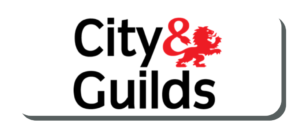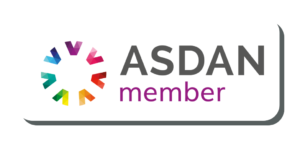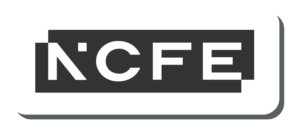Mortgage Calculator
Gaining mortgage literacy is crucial to navigating one of life’s biggest financial decisions. Understanding mortgage basics, terminology, loan types, fees, and interest calculations empowers borrowers to make the best home financing choice aligned to their budget and goals over a 30-year horizon.
With home prices and mortgage rates fluctuating through real estate cycles, nailing down how much a house truly is can be difficult. Doing upfront due diligence also prevents the pain of falling behind, strained cash flow or even foreclosure.
Additionally, for first-time home buyers, grasping key concepts like loan preapprovals, locking rates or types of mortgage loans enables informed application decisions that yield the ideal financing mix of down payment amount, interest rate and term at lowest costs given their unique situation.
The stakes are incredibly high with mortgages spanning decades alongside life changes. Getting a handle early on mortgage financial literacy means youth can take proactive control of this wealth-building tool to forge their best future by thoughtfully using credit, avoiding setbacks and monitoring equity over their lifetime journey from first condo to forever home.
You can use our mortgage calculator along with information about terminology and wording to get a better understanding of how mortgages work.
Terminology
When moving house there is always hidden fees that people forget to take into account when purchasing a house or even renting. These can be things such as:
- Solicitor fees – When buying a home, solicitor fees cover the legal work involved in property sales transactions. These include conducting title searches, drafting contracts, facilitating surveys, negotiating terms with the seller’s solicitor, filing deeds, advising clients, and finalizing purchase details. Understanding these closing costs for both yourself and the seller ensures a smooth closing and purchase.
- Moving costs – When moving from one property to another you forget how much stuff you have collected over a period of time. This usually results in hiring a removal company over a couple of day to help move you into your new property.
- Survey costs – Surveys assess a home’s condition to uncover issues impacting livability or value. Survey fees fund professional inspection of the structural soundness, electrical, plumbing, roofing, drainage and other systems to identify expensive repairs needed before finalizing a purchase. Surveys provide home buyers critical property insights to negotiate sales terms or walk away.
- Mortgage advisor – A mortgage advisor guides home buyers through selecting optimal home loan products aligned to budget, goals and financial situations. Their fees fund expertise navigating rate deals, pre-approvals, affordability calculations, paperwork, underwriting, and closing to simplify securing favorable mortgage terms for largest lifetime purchases.
A repayment mortgage is the most common type of mortgage. With a repayment mortgage, your monthly payments go towards both the loan principal amount (original amount borrowed) as well as interest costs to eventually pay off the entire loan balance over the full term.
For example, you take out a £200,000 repayment mortgage at a 4% interest rate over 25 years. Your constant monthly payment will be around £1,032. In the beginning, interest costs make up most of this £1,032 payment with less going to actually paying down the £200,000 principal. Over time as the balance is paid off, more of the £1,032 monthly payment is applied to reducing principal rather than interest. After the 25 years and over £300,000 in total payments, the original mortgage will be completely repaid through a mix of principal and interest reduction each month in a predictable way the borrower can model. This differs from interest-only mortgages where payments only cover interest so principal still must be paid off eventually.
An interest-only mortgage means monthly payments only cover the interest portion owed, not the principal loan amount. For example, you borrow £200,000 at 4% interest. Your monthly payments would be around £667 to pay just the 4% yearly interest cost. The original £200,000 loan balance does not decrease over time. This arrangement typically lasts for an initial period, say 5-10 years. After that you either repay the full £200,000 principal as a lump sum, switch to a repayment mortgage, or potentially extend the interest-only period.
Stamp duty is a very important consideration when buying a house and can be forgotten about when working out finances.
Stamp duty is a tax paid when purchasing property in the UK. The amount of stamp duty owed depends on the purchase price.
Brackets
-If you are a first time buyer you do not pay stamp duty of properties worth £425,000 or below. House prices from £425,001 up to £625,000 would mean you would pay 5% of however much more the property was than £425,001. For example if the property was £500,000, wou would pay stamp duty on the remaining £75,000, which would be a total of £3,750.
-If you are not a first time buyer then you pay:
- 0% on the first £250,000
- 2% on proportion from £250,001 – £925,000
- 10% on proportion from £925,001 – £1.5million
- 12% on the proportion above £1.5 million
For example, if a home was to cost £295,000. The stamp duty you owe will be calculated as follows:
- 0% on the first £250,000 = £0
- 5% on the final £45,000 = £2,250
- total stamp duty tax = £2,250
If you are ever to buy a second home as an additional property the percentages on each band increases by 3%.
It is collected by HMRC when the purchase completes and it is always recommend you seek advice from an expert when purchasing a house to understand all the costs.
The principal of a mortgage refers to the original loan amount that is borrowed. It’s the core amount excluding any interest or additional fees. For a mortgage, this represents the purchase price of the home minus any down payment.
For example, if you purchase a home for £300,000 and put 20% down payment, or £60,000, the principal of the mortgage would be £240,000. This is the actual amount financed that the monthly mortgage payments need to cover over the full term until the loan is paid off.
In the beginning of a repayment mortgage schedule, most of the monthly payment goes toward interest costs and less toward reducing principal. But gradual payment of interest over decades eventually leads more funds each month directly lowering principal owed. Tracking mortgage principal gives clarity on the outstanding home loan balance, the true costs of taking cash-out, as well as building equity as it is paid down each month or in large lump sums.
Understanding basic mortgage principal concepts forms the foundation for wise borrowing decisions as home buyers model what a mortgage really costs over decades of ownership.
Finance Calculators
Unsure what your take-home pay will be? Our user-friendly paycheck calculator help estimate and understand all factors to your income per month and year after deductions. Calculate here
Stressed about loan repayments? Our intuitive loan calculator clearly breaks down principal, interest costs, and monthly payments on any loan amount/term. Make informed borrowing decisions with projected costs and amortisation. Use our loan calculator.
Want to reach your savings goals faster but not sure how to calculate different types of interest? Use our customisable savings calculator to create a results-driven savings plan here.
One of the biggest costs most people ever buy, is a house. With house prices consistently increasing along with turbulent interest rates and added costs, it’s hard to know what the full cost of a house it. Use calculator


